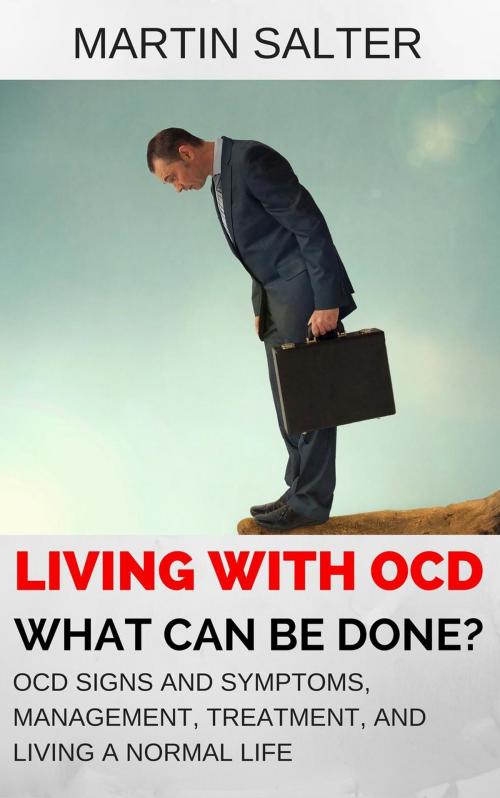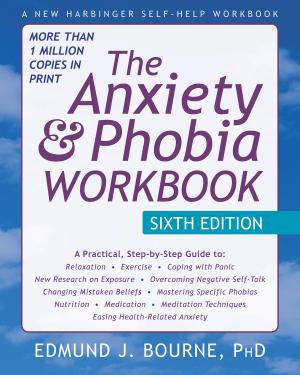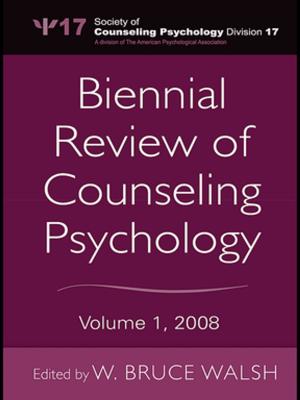Living With OCD - What Can Be Done? OCD Signs And Symptoms, Management, Treatment, And Living A Normal Life
Nonfiction, Health & Well Being, Psychology, Compulsive Behaviour, Mental Illness, Mental Health| Author: | Martin Salter | ISBN: | 9781519938923 |
| Publisher: | Martin Salter | Publication: | November 4, 2015 |
| Imprint: | Language: | English |
| Author: | Martin Salter |
| ISBN: | 9781519938923 |
| Publisher: | Martin Salter |
| Publication: | November 4, 2015 |
| Imprint: | |
| Language: | English |
Obsessive compulsive disorder is no longer an untreatable ailment. With the progress made in treatment protocols OCD is becoming a manageable condition. For most, this is simply a case of learning to identify, shift toward, and process various management strategies.
Once an individual has learned to manage their OCD, they are able to consistently fall back on this skill set. This knowledge allows individuals to manage their OCD throughout their entire lifetime, often without the need for medication. For individuals seeking to take back control of their lives this discipline can be one of the most empowering feelings in the world.
Positive management options reduce self-hate. This can prevent the cycle of triggering oneself due to self-worth complaints. This in turn can create a situation where new compulsions, triggers, and rituals are no longer being created.
When there are no new problems being added, individuals can truly learn to manage their OCD in a way that works for them; freeing up their time, relationships, and ability to progress onward. OCD is no longer a stumbling block to a happy, functional, and joy-filled life.
The goal of OCD management is to give an individual back their life, their future, and most of all their control. Since many elements of OCD involve losing or trading control, regaining control is often the most satisfying result for OCD sufferers. Individuals seeking to completely manage their OCD should be prepared to put in hard work to get the results they desire.
Like living with OCD, learning to manage OCD is a series of learning stages. Each of these stages can make or break the ability to manage OCD and regain the control that is so sorely needed within the lives of those affected.
Obsessive compulsive disorder is no longer an untreatable ailment. With the progress made in treatment protocols OCD is becoming a manageable condition. For most, this is simply a case of learning to identify, shift toward, and process various management strategies.
Once an individual has learned to manage their OCD, they are able to consistently fall back on this skill set. This knowledge allows individuals to manage their OCD throughout their entire lifetime, often without the need for medication. For individuals seeking to take back control of their lives this discipline can be one of the most empowering feelings in the world.
Positive management options reduce self-hate. This can prevent the cycle of triggering oneself due to self-worth complaints. This in turn can create a situation where new compulsions, triggers, and rituals are no longer being created.
When there are no new problems being added, individuals can truly learn to manage their OCD in a way that works for them; freeing up their time, relationships, and ability to progress onward. OCD is no longer a stumbling block to a happy, functional, and joy-filled life.
The goal of OCD management is to give an individual back their life, their future, and most of all their control. Since many elements of OCD involve losing or trading control, regaining control is often the most satisfying result for OCD sufferers. Individuals seeking to completely manage their OCD should be prepared to put in hard work to get the results they desire.
Like living with OCD, learning to manage OCD is a series of learning stages. Each of these stages can make or break the ability to manage OCD and regain the control that is so sorely needed within the lives of those affected.















